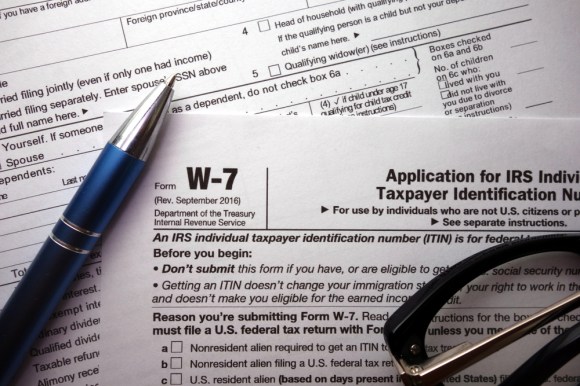When filing your taxes, you might wonder whether or not you need a Social Security number to file your return. Surprisingly, the answer is not always yes. Those ineligible for a Social Security number can still fulfill their tax obligations. To learn about another option when filing your tax return, continue reading.
Who Needs to File Taxes?
Before we tackle needing a Social Security number to file, let’s start with the basics. We need to answer the bigger question people ask about taxes – who needs to file them?
The answer depends on a few factors, but a major one of them is whether your income hits a certain IRS threshold requirement for filing. The requirements to fileare also based on your filing status, type of income, and age.
Generally speaking, if you earn less than the standard deduction for your filing status, then you may not have to file your taxes. For 2024, the standard deduction amounts are $14,600 for single or married filing separately, $21,900 for head of household, and $29,200 for married filing jointly. However, if your income levels are lower than these amounts, you may still want to file a tax return if you had taxes withheld from your paycheck as you may get them back in a tax refund.
If you’re self-employed, your income threshold is different. When you are self-employed, you need to file your taxes if your net self-employment income is $400 or more. You also need to report income reported on 1099-NEC from your self-employed work. You will receive a 1099-NEC if you made $600 or more.
Other situations where you may need to file taxes include:
- U.S. resident aliens who need to file tax returns
- Spouse or dependents of a U.S. citizen or resident alien
- Nonresident aliens with a tax filing requirement
If any of the preceding situations describe you, then you probably need to file taxes.
Do I need a Social Security number to file?
You may have thought that a Social Security number was an absolute requirement to file a tax return, but it’s not.
The U.S. government issues Social Security numbers for citizens as well as for noncitizens who request a number to work or attend school. Employers verify these numbers with the employee’s physical Social Security card and then proceed to use this numberwhen reporting taxes they withhold for the employee.
If you’re immigrating into the U.S. and applying for a visa, you may also apply for a Social Security number.
If you don’t have a Social Security number, you may not be able to claim some tax benefits that require a Social Security number such as the Earned Income Tax Credit and the Child Tax Credit.
If you do not have a Social Security number now and have to file taxes, you can file if you have an Individual Taxpayer Identification Number (ITIN).
What’s an Individual Taxpayer Identification Number?
Your Individual Taxpayer Identification Number (ITIN) is nine digits and formatted like a Social Security number, but it is only used by the IRS to provide tax processing numbers for individuals who do not have or are not eligible to have a Social Security number.
For example, an Individual Taxpayer Identification Number shouldn’t be understood to mean one is authorized to work in the United States or qualify for Social Security benefits. However, having your ITIN allows you to file your taxes in a timely manner.
How You Can Get an Individual Taxpayer Identification Number

Here’s how to apply for an ITIN:
- Fill out a W-7 (Application for Individual Taxpayer Identification Number)
- Provide proof of identity
- Provide original or certified foreign status documents (these will be returned to you)
- Prove that you need an Individual Taxpayer Identification Number for taxes. This is done by attaching your completed Form W-7 to the front of your tax return along with your supporting documentation.
If you meet all of the requirements for an ITIN, the IRS will send you a letter assigning you a tax identification number within 7 weeks, but it could take up to 11 weeks during peak tax time.
No matter what moves you made last year, TurboTax will make them count on your taxes. Whether you want to do your taxes yourself or have a TurboTax expert file for you, we’ll make sure you get every dollar you deserve and your biggest possible refund – guaranteed.






